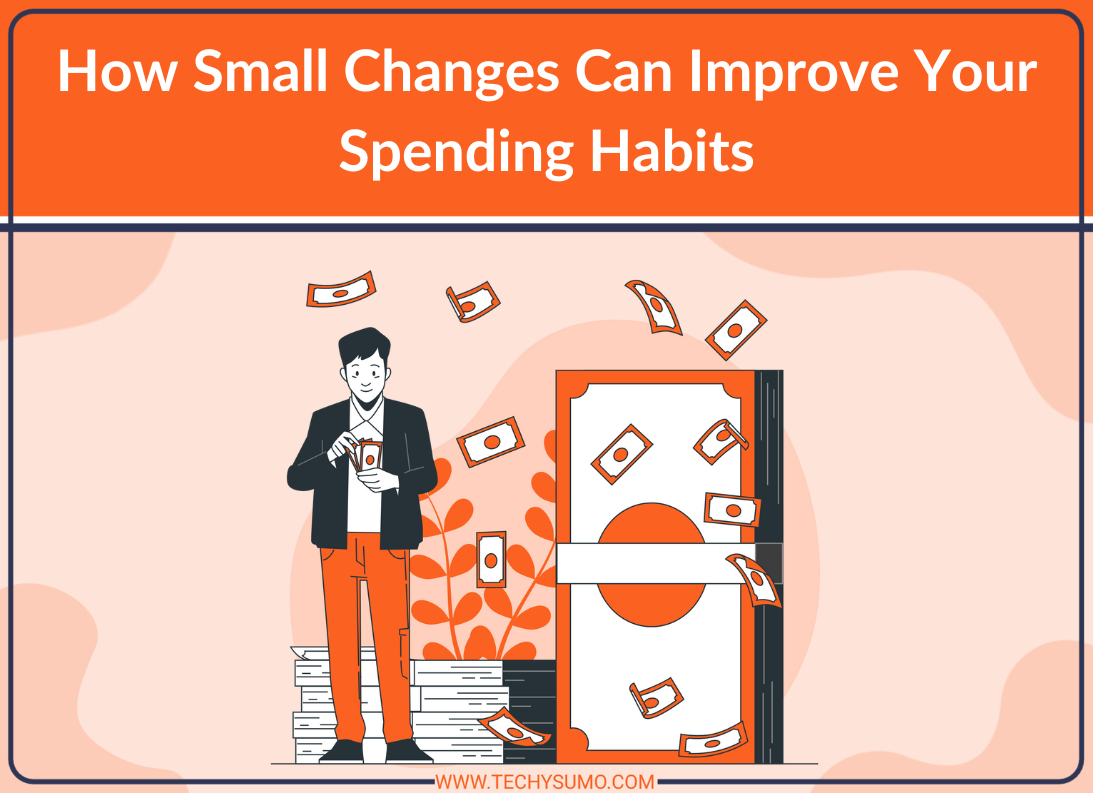Ever check your bank statement and wonder who keeps buying all the coffee—then realize it’s you? Small purchases add up fast, draining your account without warning. With prices climbing on everything from groceries to apps, getting control of daily spending feels more important than ever. The good news? You don’t have to give up what you enjoy.
In this blog, we will share how small, everyday adjustments can help you build better spending habits—and why the tools you use matter just as much as the choices you make.
Table of Contents
The Power of Noticing Where Your Money Goes
Before you can improve your spending habits, you have to know what they are. That means paying attention—not just once a month, but often. This isn’t about judgment. It’s about clarity.
Start by tracking everything for one week. Use a notebook, a phone app, or even a note on your fridge. Write down every expense, no matter how small. The goal isn’t to change anything yet. It’s just to observe. You might be surprised by the patterns you find.
Maybe you’re buying lunch out five days a week when you thought it was only two. Maybe your favorite game app is sneakily charging you more than you realized. Once you see where your money is going, you can decide what’s really worth it—and what’s not.
Also Read
One way people are gaining better control is by using smarter banking tools that offer more visibility. SoFi, for example, has become a popular option for those who want more control over their money without traditional banking fees. Their tools are designed to help users track spending, automate savings, and stay organized.
Using a free debit card by SoFi gives people access to a digital-first system with features that help break bad habits before they start. Real-time alerts, clean visuals, and no surprise fees make it easier to understand your finances as you go. This kind of setup encourages better decisions—because it doesn’t keep you in the dark.
Change One Habit, Not Your Whole Life

It’s tempting to think you need a total lifestyle overhaul to get your spending under control. But the truth is, trying to change everything at once usually leads to giving up.
Instead, try swapping one habit at a time.
If you always order food when you’re tired, try prepping meals ahead just twice a week. That doesn’t mean cooking every night—it means making smarter choices when your energy’s low. If you shop out of boredom, try a “cooling off” rule where you wait 24 hours before buying anything online. Just that pause can stop a lot of impulse buys.
The goal here is consistency, not perfection. You’ll make mistakes. You’ll forget. That’s fine. What matters is getting back on track without guilt.
Habits aren’t about willpower. They’re about design. If you make the better choice easier to follow, you’ll do it more often.
Use Your Phone for Good, Not Just for Scrolling
Most people check their phones 100 times a day—but rarely to look at their finances. That’s a missed opportunity.
Set a reminder to check your bank balance each morning. It takes ten seconds and helps you stay connected to what’s happening. Use budgeting apps that categorize your spending and show your patterns visually. If you’re a visual thinker, this helps you see where your money’s going fast.
Turn on transaction alerts so you know when money leaves your account. It might feel annoying at first, but it builds awareness. And awareness is where change starts.
You don’t have to live in a spreadsheet. Just make your phone part of your financial toolkit. It’s already in your hand. It might as well help you out.
Make a Plan for the Money You Didn’t Spend
Here’s where things get fun. When you do skip a small purchase—like skipping that second coffee or saying no to a ride-share—set that money aside.
It doesn’t have to be much. Five dollars here, ten dollars there. Create a little folder in your banking app or set up a separate savings space. Watching it grow gives you a reward loop that feels good. Over time, that pile becomes something real—a trip, a new gadget, or even an emergency cushion.
This small practice turns saving into something visible and motivating. You’re not just avoiding waste. You’re building something.
Celebrate Small Wins to Keep Going
Financial change doesn’t have to be dull. In fact, it’s more likely to stick if it feels good.
Celebrate small milestones. Did you stick to your food budget for a whole week? Awesome. Did you remember to check your account every day for a month? Great. These habits matter more than you think.
Too often, people only celebrate huge financial victories—paying off a loan, hitting a savings goal, getting a big raise. But those wins are built on smaller actions. Recognize them.
You don’t have to throw a party every time you skip a latte. But a little self-respect goes a long way.
Rethink What “Needs” Really Mean
One of the most overlooked ways to improve spending habits is by revisiting what you label as a “need.” Over time, it’s easy to confuse comfort with necessity. That gym membership you haven’t used in months? It might feel essential, but if it’s not being used, it’s just a fancy monthly reminder. That daily delivery order may feel like a routine, but it could be draining your flexibility without you even noticing.
Ask yourself what you truly rely on day to day—and what’s just become automatic. Try going one week without one of your “must-haves.” You’ll either find you miss it (and it’s worth the cost), or that life goes on just fine without it. This isn’t about deprivation. It’s about mindfulness.
Small Steps, Big Outcomes
It’s easy to feel like financial success belongs only to people with high-paying jobs or zero debt. But the truth is, most financial peace comes from small, steady choices. You don’t need to be rich to be smart with your money. You just need to start noticing, planning, and choosing a little better each day.
Your habits shape your outcomes. So choose ones that support the life you want, not the one you’re stuck in now.
No shame. No panic. Just better tools, better patterns, and a better sense of control.
Because when it comes to your money, small changes aren’t just helpful—they’re powerful.






